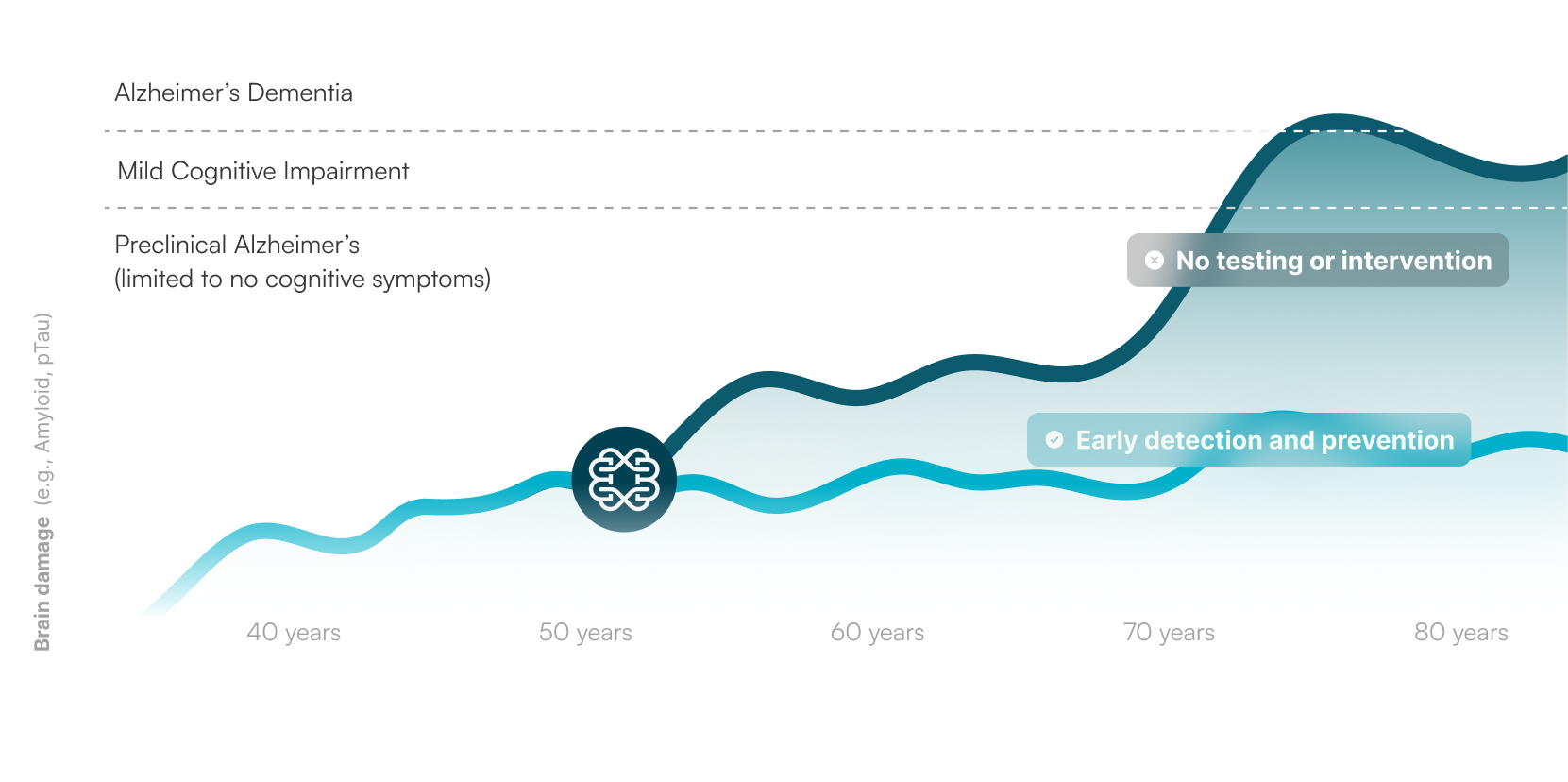"Within 3 months, I was able to completely change my bloodwork"
Kim
BetterBrain member since 2023
Get a head start on the disease and take steps to prevent and delay symptoms.
Simple at-home pTau-217 blood test
Detect dementia up to 20 years before symptoms start
Actionable, science-backed prevention program
Elevated blood levels of Ptau variants 181 and 217 are among the earliest warning signs of Alzheimer's—and are directly linked to the buildup of amyloid plaques in the brain. Ptau levels begin to rise as the brain starts accumulating amyloid plaques, often appearing up to 20 years before symptoms begin.
Measuring Ptau provides a safe, simple way to detect amyloid plaque early —without the need for invasive procedures like PET scans or spinal taps. With a simple blood test, you can take control early—giving yourself more time to act, slow disease progression, and explore preventative programs.

Schedule a blood draw from 1 of our 2,000 partner labs, or choose an at-home blood draw for extra comfort.
Your results will be available within 5 days and will be personally explained to you by a dementia specialist who will help you understand the results & implications.
Uncovering high pTau levels doesn't mean you're powerless. Join BetterBrain's prevention program to take back control and reduce your overall risk.
Research shows that a personalized approach can significantly lower your risk of developing dementia. In other words, if your test reveals elevated pTau levels, you still have the power to take action. Targeted lifestyle changes can make a meaningful difference in reducing your risk and avoiding Alzheimer's altogether.
Source: The Lancet. Dementia prevention, intervention, and care: 2024 report of the Lancet standing Commission
A family history of dementia can increase your risk up to 75% — but with today's tools, you don't have to wait for symptoms to take control.
About 75–80% of dementia cases occur without any family history, so having no affected relatives doesn't necessarily mean you're in the clear.
With expertise in genetics, neuroscience, epidemiology and heritable diseases, BetterBrain's scientific advisors ensure that our prevention program remains guided by the latest scientific breakthroughs.
See how pTau testing is changing lives – and drawing global headlines.